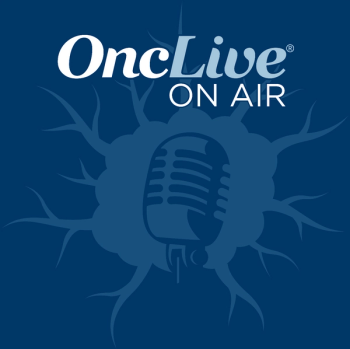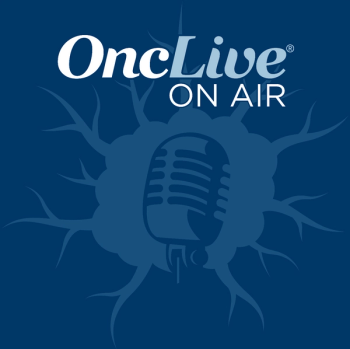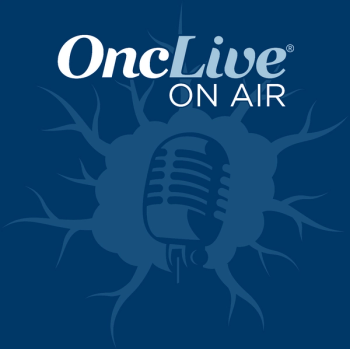
Dr. Sherman discusses the incidence of RET fusions in medullary thyroid cancer and the current clinical landscape of RET inhibitors in the field.

Your AI-Trained Oncology Knowledge Connection!


Dr. Sherman discusses the incidence of RET fusions in medullary thyroid cancer and the current clinical landscape of RET inhibitors in the field.

Dr. Halmos discusses the data from a study examining seroconversion rates following COVID-19 vaccination among patients with cancer and underscores the need for novel vaccination or passive immunization strategies for immunosuppressed cohorts.

Dr. Masten reflects on the main challenges that arose during the COVID-19 lockdown with regard to surgery in patients with breast cancer, the steps that were taken as the lockdown started to lift, and the changes that have been made with regard to managing patients around the time of surgery and in the operating room.

Dr. George discusses treatment considerations in the first-line setting of metastatic pancreatic cancer, signs that may indicate disease progression and the need for second-line therapy, and investigational agents in the pipeline.

Dr. Pant discusses the current role for germline and somatic testing in pancreatic cancer, examines the research landscape with PARP inhibitors, KRAS inhibitors, and other targeted agents, and shares his hope for the future of drug development in the field.

Dr. Patel discusses the significance of the new collaboration between The University of Texas MD Anderson Cancer Center and TriSalus™ Life Sciences.

Dr Gradishar and colleagues highlight key clinical trials such as DESTINY-Breast01, HER2CLIMB, NALA, and SOPHIA in the setting of advanced HER2-positive breast cancer and discuss the practical considerations of these data.

Dr Gradishar and colleagues take an in-depth look at data from select clinical trials in the neoadjuvant and adjuvant settings for patients with HER2-positive breast cancer.

In the first segment, Dr Gradishar and colleagues examine the unmet needs clinicians face despite recent advances in the treatment of patients with HER2-positive breast cancer.

Dr Jhaveri and colleagues highlight key clinical trials in the setting of advanced HER2-positive breast cancer and discuss the practical considerations of these data.

Dr Jhaveri and colleagues take an in-depth look at data from select clinical trials in the neoadjuvant and adjuvant settings for patients with HER2-positive breast cancer.

In the first segment, Dr Jhaveri and colleagues discuss the unmet needs clinicians face in the treatment of patients with HER2-positive breast cancer.

Dr Kaklamani and colleagues highlight key clinical trials such as DESTINY-Breast01, HER2CLIMB, NALA, and SOPHIA in the setting of advanced HER2-positive breast cancer and discuss the practical considerations of these data.

Dr Kaklamani and colleagues take an in-depth look at data from select clinical trials in the neoadjuvant and adjuvant settings for patients with HER2-positive breast cancer.

In the first segment, Dr Kaklamani and colleagues discuss the remaining unmet needs clinicians face despite recent advances in the treatment of patients with HER2-positive breast cancer.

Dr. Kaklamani discusses current treatment sequencing approaches in HER2-positive breast cancer and the benefits and challenges of moving effective treatments in earlier lines of therapy.

Drs Grivas and Wright discussed the goals of the Seattle Cancer Care Alliance Bladder Cancer Multidisciplinary Clinic, data that support the use of a multidisciplinary approach in bladder cancer, and the lingering effects of the COVID-19 pandemic on collaboration across health care specialties.

Dr. O’Dea discusses the efficacy and safety of trastuzumab deruxtecan in patients with HER2-positive breast cancer, treatment sequencing recommendations, and future research directions for antibody-drug conjugates in the field.

Sara M. Federico, MD, discusses the diagnosis and presentation of neuroblastoma, the role of multidisciplinary care, and novel therapies that could significantly affect the treatment paradigm for this malignancy.

Dr. Riedel and Dr. Van Tine discuss the multidisciplinary management of patients with sarcoma, the clinical impact of the FDA approval of ripretinib in the gastrointestinal stromal tumor paradigm, and other exciting advances in sarcoma.

Dr. Pagel discusses the advances that have been made with PI3K inhibitors in lymphoid malignancies, the impact of the FDA approval of umbralisib on the treatment paradigm in follicular lymphoma and marginal zone lymphoma, and ongoing research poised to expand the armamentarium.

Dr. Saba shares the ins and outs of nasopharyngeal carcinoma, ongoing clinical trials, and the complexities of managing the rare disease.

In our exclusive interview, Dr. Choueiri and Dr. Motzer discuss the clinical implications of the phase 3 CheckMate-9ER trial in advanced renal cell carcinoma and how to best use the combination in practice.

The Marshalls go beyond the pages of their new memoir, Off Our Chests: A Candid Tour Through the World of Cancer, to discuss how Liza's diagnosis of triple-negative breast cancer changed their lives and the key messages they hope readers will take from their book.

Dr. Hu discusses the importance of testing for RET alterations in thyroid cancer, the FDA approvals of selpercatinib and pralsetinib, and the changing dynamics between medical oncologists and endocrinologists.

Dr. Coleman and Dr. Brown discuss how understandings of BRCA and patient eligibility for PARP inhibitors have evolved in ovarian cancer, the effects of frontline maintenance trials on treatment recommendations, the clinical significance of the findings from the ARIEL4 trial, and where PARP inhibition is headed in the field.

Patrick I. Borgen, MD, discusses male breast cancer in further detail, how he approaches treatment in his male patients with the disease, and what can be done to remove the stigma that men often feel with a breast cancer diagnosis.

In our exclusive interview, Dr. Monk and Dr. Herzog discuss the importance of molecular testing in ovarian cancer and the utility of PARP inhibitor maintenance and treatment.

Dr. Spira discusses the historical challenges of targeting KRAS, key findings from the phase 2 CodeBreaK 100 trial with sotorasib in KRAS G12C-mutant solid tumors, and the next steps of development for KRAS inhibitors in oncology.

Dr. Levy discusses key research efforts with targeted therapies for patients with lung cancer who harbor NTRK, KRAS, and HER2 aberrations.